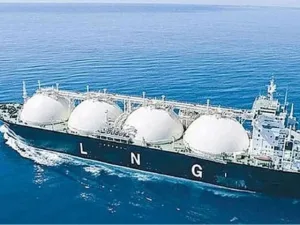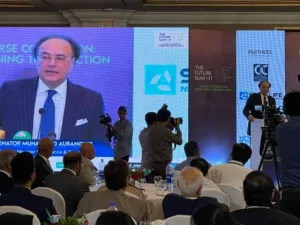IMF Likely to Resist Proposed Flood Tax on Imported Luxury Items
ES Mag
ISLAMABAD: With the possibility of witnessing a revenue shortfall in achieving the tax collection target for the first quarter (July-September), the IMF has hinted that it might oppose any move to slap a flood levy on luxury imported goods.
The Federal Board of Revenue (FBR) high-ups briefed the visiting IMF review mission and apprised them of the possibility of surfacing a revenue shortfall of more than Rs100 billion in achieving the desired tax collection target for the first three months (July to September) of the current financial year.
Pakistan and the IMF review mission are currently holding parleys for the completion of the second review and release of the third tranche worth $1 billion under the Extended Fund Facility. Pakistan has so far secured $2.1 billion from the IMF under $7 billion EFF.
The FBR has envisaged a tax collection target of Rs3.08 trillion for the first quarter of the current fiscal year (although the IMF has given an indicative target of Rs3.023 trillion for the end of September 30, 2025). The FBR had faced a shortfall in achieving the desired target envisaged for the first two months. In totality, there is apprehension that the tax collection might miss the target by a margin of Rs100 to Rs150 billion.
When the IMF’s technical review mission inquired about the possibility of achieving the desired annual tax collection target of Rs14.13 trillion, the FBR high-ups replied that the recent floods impacted the revenue collection, but they were optimistic that the consumption tax would recoup in around December 2025, so there was no need for revision in the tax collection target.
The tax-to-GDP ratio which stood at 10.2 percent of GDP for the last fiscal year 2024-25 ended on June 30, 2025, there are hopes that the FBR’s tax to GDP ratio might witness some improvement with possibility of downward revision in the real GDP growth target as this number would be finalised by the Pakistan Bureau of Statistics (PBS) in October/November 2025. Pakistan’s provisional GDP growth stood at 2.68 percent, and there is a strong possibility that it might be revised downward slightly, so the tax-to-GDP ratio would also go up further. Pakistan and the IMF are all set to resume ongoing talks from next week, where the Ministry of Finance will brief the IMF on the macroeconomic projections for the current fiscal year. So far, the damage caused by the recent floods has impacted the farm sector, but it did not seem huge, as reported by the Crop Reporting Centre of the Punjab.
The SUPARCO also shared satellite images of crop damages, which caused damages to rice and cotton of less than 10 percent and to some extent livestock in Punjab. The Pakistani side was thinking about the imposition of a flood levy on luxury imported goods, especially vehicles of 1800cc and above, as well as other luxury items. However, the IMF does not seem in any mood to impose a levy on imported goods for obvious reasons that they wanted to remove qualitative and quantitative restrictions on imports, so how they could favour any move to impose Regulatory Duty on the name of luxury items.
So the Pak authorities might leave with no other options but to make adjustments in expenditures, especially developmental through Public Sector Development Program (PSDP) to divert towards flood reconstruction efforts. Secondly, these efforts might be assigned to provinces to fulfil their requirements in their respective areas, said the official.









